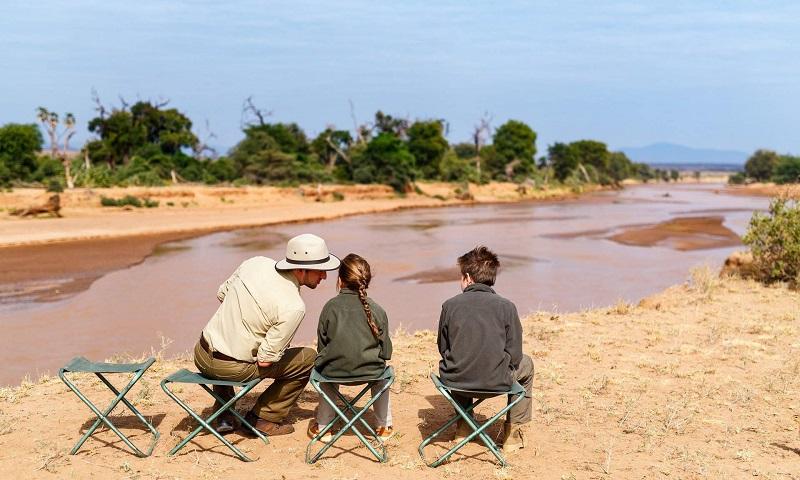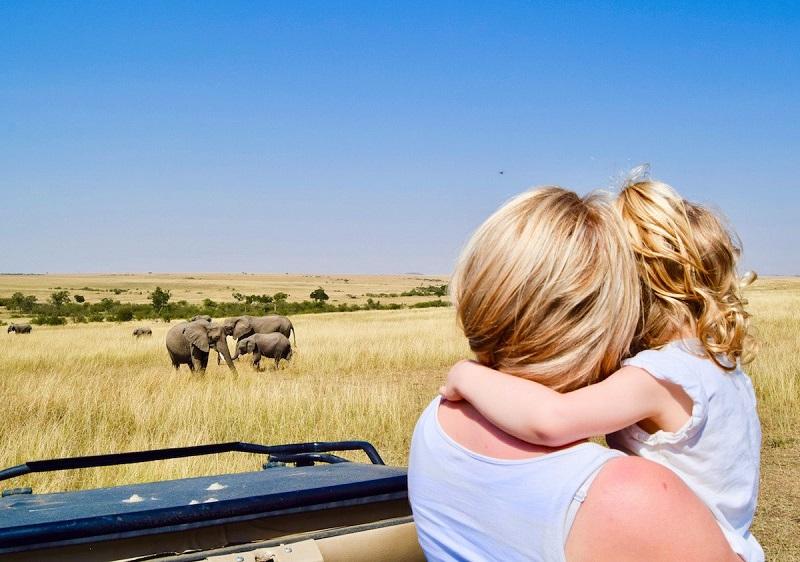Embarking on a safari adventure with children is more than just a vacation. It’s an opportunity for families to connect with nature, witness majestic wildlife up close, and create lasting memories together. Safari destinations across Africa offer not only breathtaking landscapes and diverse wildlife but also accommodations and activities designed with families in mind.
By immersing themselves in the wonders of the wild and engaging with different cultures, children develop a deeper appreciation for nature and conservation. This guide explores essential tips for planning a safari that is safe, educational, and unforgettable for families with young explorers.
Please Download Our Mobile App here.
Selecting Family-Friendly Accommodations
When planning a safari with children, choosing accommodations that prioritize safety and comfort is paramount. Opt for lodges or camps that offer family rooms equipped with amenities like mosquito nets, secure fences, and child-friendly facilities. These features not only ensure a peaceful environment but also provide spaces for children to relax and play safely.
Some lodges go beyond by offering supervised childcare services and organized kids’ activities. This allows parents to enjoy downtime knowing their children are engaged and cared for. Swimming pools at these lodges provide a refreshing break between safari activities, making the experience both enjoyable and relaxing for the entire family.
Choosing the Right Destination

Selecting the ideal safari destination for a family involves considering factors that cater to both children’s interests and practical needs. Kruger National Park in South Africa stands out for its vast landscapes where children can marvel at iconic wildlife like elephants, lions, and rhinos. The park’s infrastructure includes family-friendly lodges equipped with spacious rooms, swimming pools, and secure surroundings, ensuring a comfortable stay after thrilling game drives.
Similarly, Masai Mara in Kenya offers expansive savannahs where children can witness the annual wildebeest migration. The lodges here often provide amenities such as kids’ clubs and guided nature walks that educate young explorers about local flora and fauna.
Planning Safari Activities
Tailoring safari activities to children’s interests and attention spans is crucial for their enjoyment and engagement. Opt for shorter game drives with breaks to accommodate their energy levels and curiosity about wildlife. Choose safari vehicles with open sides for unobstructed views and better wildlife sightings, enhancing their excitement and learning experience.
Guided nature walks led by knowledgeable rangers offer children insights into animal behavior, plant life, and conservation efforts, enriching their understanding of the natural world. These interactive experiences not only entertain but also educate, fostering a lifelong appreciation for wildlife and environmental conservation among young adventurers.
Educational Programs and Cultural Interactions

Introducing children to educational programs and cultural interactions during a safari enhances their overall experience and learning. Many lodges offer junior ranger programs where children learn about wildlife tracking, conservation practices, and the importance of biodiversity. These programs often include hands-on activities like bush walks and animal tracking exercises, allowing children to connect with nature in meaningful ways.
You can visit local communities that provide insights into different cultures, traditions, and ways of life. Engaging with local villagers through guided tours or cultural demonstrations helps children develop empathy, respect, and a broader perspective of the world around them. These educational and cultural experiences not only complement the safari adventure but also leave a lasting impression.
Ensuring Health and Safety
Health and safety are paramount when traveling with children, especially on a safari. Consult a healthcare professional about necessary vaccinations and malaria prophylaxis before your trip. Pack a comprehensive first-aid kit that includes insect repellent, sunscreen, antiseptic wipes, and any prescription medications your family might need.
Familiarize yourself with the local medical facilities and emergency procedures of your safari destination. You can educate your children on the importance of staying close to the group, not touching or feeding wildlife, and following the guide’s instructions to ensure their safety during the adventure.
Engaging Children with Pre-Safari Preparation

Preparing children for a safari adventure can enhance their excitement and understanding. Engage them with books, documentaries, and educational materials about the animals and ecosystems they will encounter. Discuss the importance of wildlife conservation and respect for nature.
Consider creating a safari checklist or a wildlife bingo game to make the experience interactive and fun. Involving children in packing their gear, like selecting binoculars or choosing safari-appropriate clothing, can also build anticipation and ensure they feel invested in the trip.
Maintaining a Flexible Schedule
While it’s essential to have a planned itinerary, maintaining flexibility is key when traveling with children. Be prepared to adjust plans based on their energy levels, moods, and interests. Schedule downtime between activities to allow for rest and relaxation, preventing fatigue and ensuring everyone stays enthusiastic.
Consider having a mix of active and passive activities, such as alternating between game drives and leisure time at the lodge. Flexibility ensures that the safari remains enjoyable and stress-free for the entire family, accommodating the varying needs of both parents and children.
Bringing Entertainment for Downtime

While the primary focus of a safari is wildlife viewing, there will be periods of downtime, especially during the hottest parts of the day. Bringing along entertainment can help keep children occupied and content. Pack items such as books, coloring materials, travel games, or a tablet with educational apps and movies.
Engaging activities can also include drawing or writing about their safari experiences in a journal, which can serve as a cherished keepsake. Having these entertainment options ensures that children remain entertained and happy during the quieter moments of the safari adventure.
Conclusion
These tips ensure a well-planned safari that caters to the needs and interests of children, making it an unforgettable adventure for the whole family. So pack your bags and embark on an unforgettable safari with your kids.



